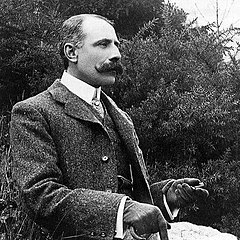This playlist was compiled after the chronological catalogue of Schubert works by Otto Erich Deutsch, sorted by the D Nnumbers. Some composition has an extra letter after the number, like D. 124b (second version of D. 124) and D. 1a (newly discovered piece since the Duetsch Catalogue was completed, composed around the same time of D. 1). All works available on Spotify were collected into this 113-hour chronological playlist, through more than 2,000 searches.
As with my other composer playlists, my goal is to feature as many fine recording as possible. And since Spotify launched in America, I also have to make sure all the tracks are available on Spotify USA, unless the sole recording of a piece is only on Spotify UK, which I use. Still, about 200 track in this playlist are not currently available on Spotify USA, please make sure you have unchecked "Hide unplayable tracks" in Spotify's Preferences to browse the full list.
When the playlist is fully loaded in your Spotify, press Ctrl (CMD on Macs) + G to set it to album view. Then you can use the filter bar (Ctrl + F) to browse by genre or find specific works your are looking for.
- Type in symphony to browse the 13 symphonies:
No. 1 (Menuhin/EMI), No. 2 (Wand/RCA), No. 3 (Zender/Hänssler), No.4 "Tragic"(Davis/RCA), No. 5 (Harnoncourt/Warner), No.6 "Little"(Beecham/EMI), Symphony in D (Marriner/Decca. Sketches orchestrated by Brian Newbould, D. 615), Symphony in D (Gülke/Berlin Classics. D. 708a), No.7 (Litschauer/Naxos. Completed by Weingartner), No.8 "Unfinished" (original version: Abbado/DG; 4-movement version: Mackerras/EMI), No.9 "Great" (Bernstein/Sony), Symphony "Gmunden-Gastein" (Samuel/Centaur. D. 849, reconstructed by G. Elsholz, probably spurious), No. 10 (Gülke/Berlin Classics)
D. 708a and D. 936a (No. 10) were tagged not as symphony but sinfonische, and D. 615 symphonic, you will have to change the keywords. Wand, Zender, Marriner, and Abbado's recording are from their complete sets of the symphonies, so you can also click the album title and browse other symphonies in those albums. I wanted to include Brüggen's compete set but it's not on Spotify USA.
- Type in piano sonata to browse the 22 piano sonatas:
E major, D. 157 (Oppitz/Hänssler), C major, D. 279 (Klien/Vox), E major, D. 459 (Klien/Vox), A minor, D. 537 (Nebolsin/Naxos), A-flat major, D. 557 (Kempff/DG), E minor, D. 566 ((Oppitz/Hänssler), E-flat major, D. 568 (Pludermacher/Transart), F-sharp minor, D. 571 B major (Schiff/Decca), D. 575 C major (Uchida/Philips), D. 613 F minor (Keller/MGB), D. 625 C-sharp minor (Badura-Skoda/Genuin), D. 655 A major (Damerini/Arts Music), D. 664 A minor (Richter/BBC Legends), D. 784 C major (Endres/Capriccio), D. 840 A minor (4-movement version, Gothoni/Ondine), D. 845 D major (Uchida/Decca), D. 850 G major (Andsnes/EMI), D. 894 C minor (Sokolov/Opus 111), D. 916b "Sonata Oubliée" (Knauer/Berlin Classics), D. 958 A major (Pollini/DG), D. 959 B-flat major (Perahia/Sony), D. 960 (Richter/Alto)
D. 613 and D. 894 were tagged not as "piano sonata", you may use their D numbers to filter. D. 916b was not even tagged with its D. number, filter with the artist name Knauer instead. I wanted to use more recordings from Kempff, Uchida, Lupu and Schiff, but most of them are not on Spotify USA yet.
You can also type in piano to browse works with piano. In addition to the sonatas, you will see dozens of other works, including 6 Moments musicaux (Brendel), 12 German Ländler (Goode) and the Impromptus (D. 899 Perahia; D. 935 Serkin).
- Type in string qu to browse the string quartets and quintets:
Ensembles in this section include Melos Quartet, Kodaly Quartet, Borodin Quartet, Tokyo String Quartet, Belcea Quartet (Death and the Maiden), Kim Kashkashian/Gidon Kremer/Yo-Yo Ma/Daniel Phillips (Quartet No. 15, D. 887), Heinrich Schiff/Alban Berg Quartet (String Quintet D. 956) and others.
- Type in lied or song to browse the lieder:
This section features dozens of singers, including Dietrich Fischer-Dieskau, Fritz Wunderlich, Hermann Prey, Elisabeth Schwarzkopf, Elly Ameling, Peter Pears, Janet Baker, Anne Sofie von Otter, Ian Bostridge, Mark Padmore, and Thomas Quasthoff. The tracks were taken from over 100 albums. A few lied recordings do not have those two keywords in their titles, you may try recital, sings or simply Winterreise.
- Type in hand or duet for piano four-hand works. Pianists in this section include: Kissin/Levine, Richter/Britten, Perahia/Lupu, Eschenbach/Frantz and more.
- Type in fragment for the odds and ends.
- If you are looking for a specific work and you know the D number, simple type in the D number xxx, if you can't find it, then try Dxxx. Most tracks in this playlist are tagged with either format of the D number, except for the Wanderer Fantasy and very few others.
I started this playlist in early 2010, until last week there was only one track in this playlist: D. 1, the 24 minutes fantasia for piano four-hand. It is Spotify's Austria launch that gave me the determination to fulfill this huge task. I hope this playlist can help you to enjoy this greatest native Viennese composer's gigantic output. (The current file of D. 1 has a transcoding problem and it's not streamable, though it still works in my place. I have informed Spotify and hopefully they will fix it soon).
Here's the Spotify playlist: Franz Schubert: Complete Chronological Catalogue D. 1 - 998 (1605 tracks, total time: 113 hours) Press Ctrl (CMD)+G to browse in album view. See this page for over 700 songtexts set by Schubert, many of them with English translations. You can also download the 422-page Schubert songbook from Hyperion for free.
I am not knowledgeable enough to choose the best recording for every work, but as you flip through this playlist, you probably would agree that, no single label can ever release such a thoroughly comprehensive Schubert box-set with such a great diversity of performers, not to mention the ability to locate and start to play any piece within seconds. My effort is nothing but some 10 hours of searching, and I am but an amateur music fan. What is evident here is the sheer power of Spotify, and its advantage over CD/digital downloads is even more evident than CD/MP3 over cassette/vinyl (as mass distribution medium, not just collectable items for analog/hi-fi fans only). Maybe its business model is not perfect yet, but there is no going back. I hope the music industry, especially the classical heads get ready for this soon. Why keep pondering which box-set (EMI, 50-CD, $78; Brilliant, 40-CD, $94) is a greater bargain? Get this 100-CD Spotify edition and start to listen now.
Please leave a comment if you find something that I left out, thank you.























